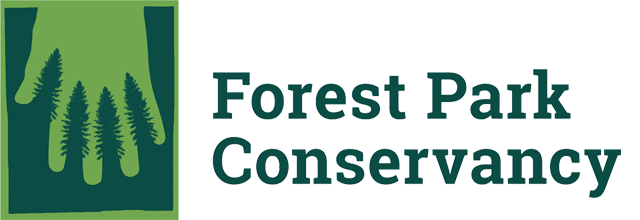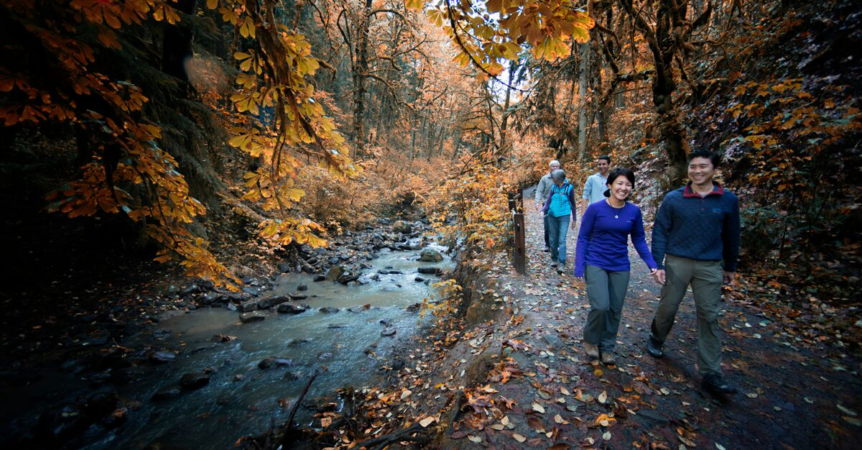PORTLAND, Ore.–Forest Park, Portland’s treasured 5,200 acre forested urban park, has been selected by the Central Park Conservancy Institute for Urban Parks to participate in its inaugural 2019-2020 Partnerships Lab and receive support from one of the world’s most famous parks organizations.
The Forest Park Conservancy (FPC) is one of eight park organizations from throughout the country to participate in the new and innovative program called “Partnerships Lab.” The Partnerships Lab is designed by the Conservancy Institute for Urban Parks, a thought leader in urban park management and public-private park partnerships,to leverage the resources and expertise of the Conservancy to help other parks build their capacity to plan, develop and maintain great public spaces.
With applications fielded from nonprofit organizations and city parks throughout the United States, Forest Park Conservancy was selected for its vision that includes breaking down cultural barriers, developing opportunities and expanding its collaboration with communities of color and underserved communities to increase their engagement with Forest Park.
“Our goal is to ensure everyone in the community receives the social, economic, environmental and health benefits that Forest Park provides,” said Renee Myers, FPC executive director. “This is an incredible opportunity to learn and benefit from the vast knowledge and expertise of a leading organization that cares for what is arguably the world’s greatest urban park.”
As the inaugural year of the program, all participants–including Parks & People Foundation in Baltimore, Md.; Public Space Planning Unit in Detroit, Mich.; Balboa Park Conservancy in San Diego, Calif.; Downtown Austin Alliance Foundation in Austin, Tex.; Forest Park Conservancy and three other parks in New York City–will work collaboratively with the Institute for six to 12 months. During that time, each will work with the Institute and the other participants to develop and implement a strategy for achieving the challenge outlined in their proposal. They will receive access to staff time and experts both from within the Conservancy and from its network of professionals, as well as a capacity-building grant.
With Forest Park celebrating its 70th anniversary in 2018 and FPC as an organization turning 30 years old this year, it’s a watershed moment for Portland’s beloved forested park.
“Today, Portland’s legacy of protecting, caring for and appreciating this incredible natural area is stronger than ever,” said Myers. “It’s a proud day for the many citizens, volunteers and donors who have put the time, effort and energy into helping ensure Forest Park thrives for generations to come.”
About the Forest Park Conservancy
Forest Park Conservancy is the only nonprofit organization solely dedicated to caring for Forest Park, one of the largest forested urban parks in the nation located just 10 minutes from downtown Portland, Ore. To explore Forest Park, make a donation visit forestparkconservancy.org/donate
About the Central Park Conservancy
The Central Park Conservancy is a private, not-for-profit organization that manages Central Park and is responsible for raising the Park’s annual operating budget. The Conservancy’s staff of more than 300 is responsible for all aspects of the Park’s stewardship, from day-to-day maintenance and operations to continued restoration and rebuilding projects. The Conservancy also operates the Park’s visitor centers, provides public programs, and serves as a resource for other NYC parks and for public-private partnerships around the world. To learn more about the Conservancy, visit centralparknyc.org. Follow the Central Park Conservancy on Twitter, Instagram, and Facebook at @centralparknyc.
About the Institute for Urban Parks
The Institute for Urban Parks, founded in 2013, is the thought leader in urban park management and public-private park partnerships. It provides professional education, capacity building, peer-to-peer exchange, and thought leadership to strengthen the field of urban park management so that all park professionals have the skills, knowledge, and attitudes they need to create and support successful and sustainable parks.

